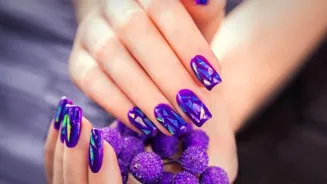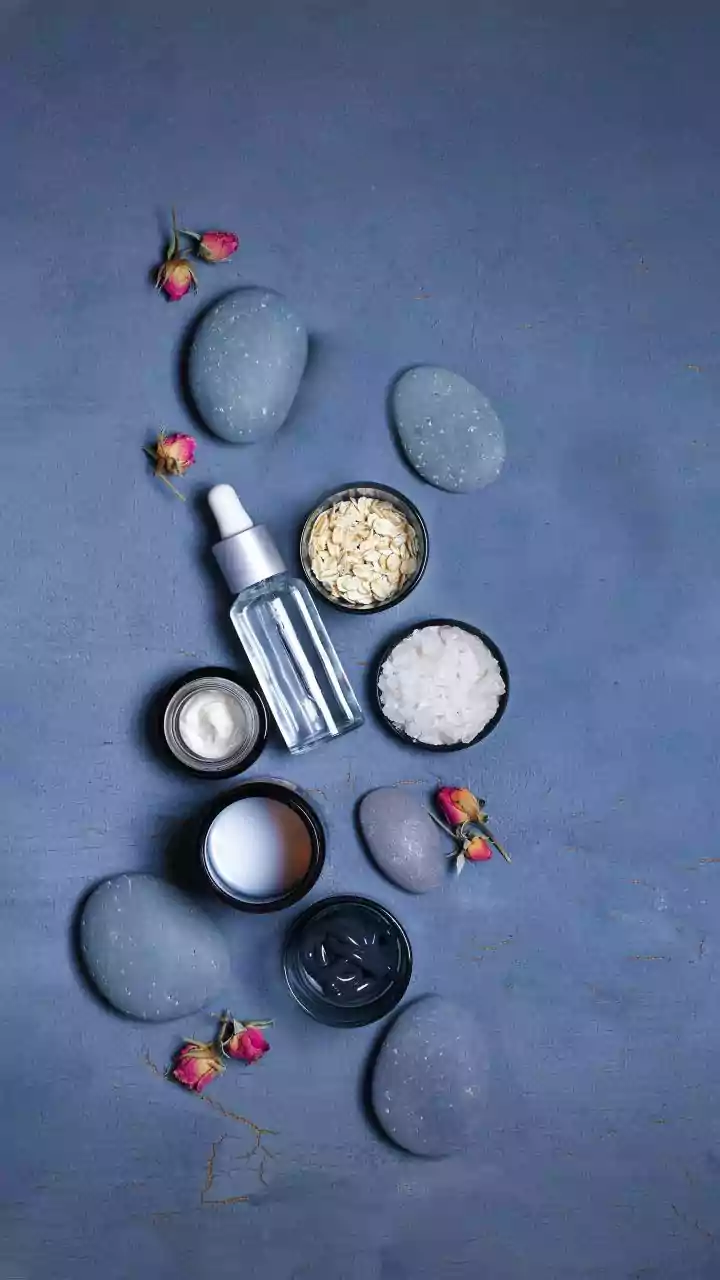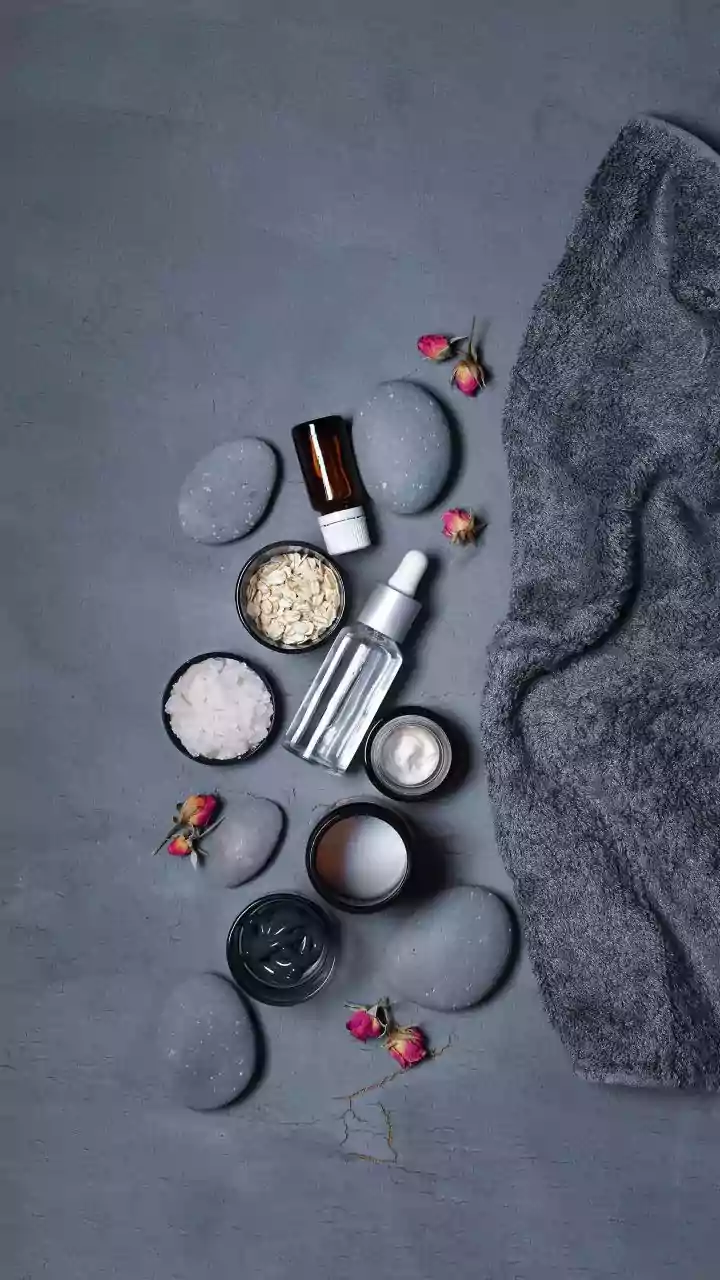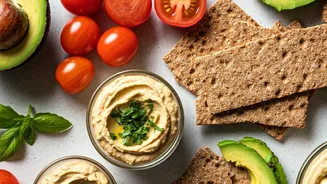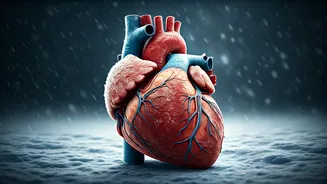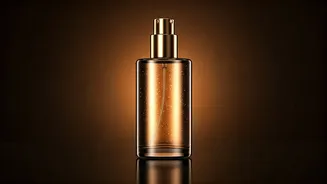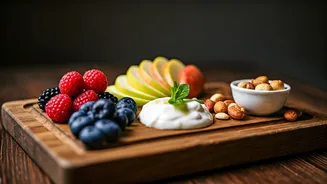Discover 8 Tips for Healthy Nails: Essential for Overall Well-being. Learn simple yet effective ways to maintain strong, beautiful nails. Read on for a comprehensive guide to nail care essentials
Your nails,
often overlooked, are actually little indicators of your overall health. Weak, brittle, or discolored nails can sometimes signal underlying health issues. But more often than not, they simply reflect a lack of proper care.
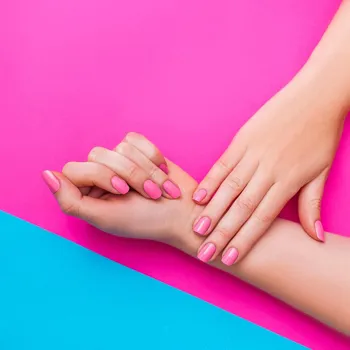
Strong, healthy nails not only look good but also protect the delicate skin underneath from injury and infection. So, let’s dive into eight simple yet effective tips to keep your nails in tip-top shape!
Hydration is Key: Inside and Out
Just like your skin, your nails need hydration to stay healthy and strong. Dehydration can lead to brittle nails that are prone to breakage. Make sure you're drinking enough water throughout the day – aim for at least eight glasses. This will not only benefit your nails but also your overall health.
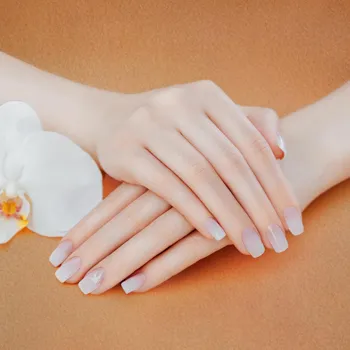
Apart from internal hydration, external moisturization is equally important. Apply a good quality hand cream or nail oil regularly, especially after washing your hands.
Look for creams containing ingredients like shea butter, almond oil, or vitamin E, which are known for their moisturizing properties. These ingredients help to lock in moisture and prevent your nails from drying out.
Consider keeping a small bottle of hand cream in your bag or at your desk, so you can easily apply it throughout the day. Make it a habit to moisturize your nails every night before going to bed – this will give the cream ample time to work its magic while you sleep.
Proper hydration is a foundational step towards achieving healthy and beautiful nails. Remember, consistency is key. Make hydration a part of your daily routine, and you'll soon notice a significant improvement in the strength and appearance of your nails.
Don't underestimate the power of water and a good moisturizer when it comes to nail health! Think of your nails like little plants, needing water and nourishment to flourish.
Gentle Cleaning is Essential
When it comes to cleaning your nails, harsh soaps and excessive scrubbing can do more harm than good. Opt for a mild, gentle soap instead. Avoid using harsh chemicals or abrasive cleaners, as these can strip your nails of their natural oils, making them dry and brittle.
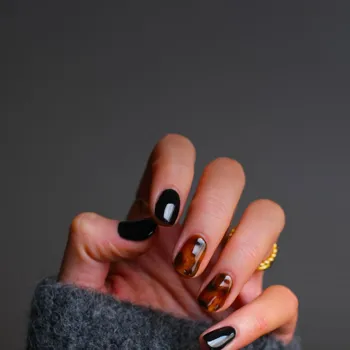
When washing your hands, be sure to avoid very hot water, as this can also contribute to dryness. After washing, always pat your hands dry thoroughly, paying special attention to the area around your nails.
Leaving moisture around your nails can create a breeding ground for bacteria and fungi, leading to infections. Consider using a soft nail brush to gently clean under your nails, removing any dirt or debris.
Avoid using sharp objects or tools to clean under your nails, as this can damage the nail bed and increase the risk of infection. If clipping your nails, use nail clippers. Avoid metal tools which can cause damage and infection.
Remember, gentle cleaning is all about maintaining hygiene without compromising the health of your nails. By choosing mild soaps, avoiding harsh chemicals and practicing thorough drying, you can keep your nails clean and healthy.
Trim Your Nails Regularly
Regular trimming is crucial for maintaining healthy nails, preventing breakage, and promoting even growth. How often you need to trim your nails will depend on how quickly they grow. But a general guideline is to trim them every two to three weeks.
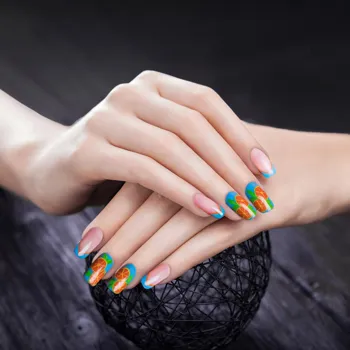
When trimming, use sharp nail clippers or scissors designed specifically for nails. Dull clippers can tear or damage the nails. Cut your nails straight across to prevent ingrown nails, and then gently round the edges with a file.
Avoid cutting your nails too short, as this can make them more vulnerable to injury and infection. After trimming, use a fine-grit nail file to smooth out any rough edges or snags. Filing your nails in one direction, rather than back and forth, can help to prevent splitting and breaking.
Remember to file gently and avoid applying too much pressure. Regular trimming not only keeps your nails looking neat and tidy but also promotes their overall health and strength. Make it a part of your regular grooming routine, and your nails will thank you.
Think of trimming your nails as giving them a regular "haircut," keeping them healthy and manageable.
Protect Your Nails from Harsh Chemicals
Our nails are constantly exposed to various harmful chemicals, from detergents and cleaning products to nail polish removers. These chemicals can strip our nails of their natural oils, leaving them dry, brittle, and prone to breakage.
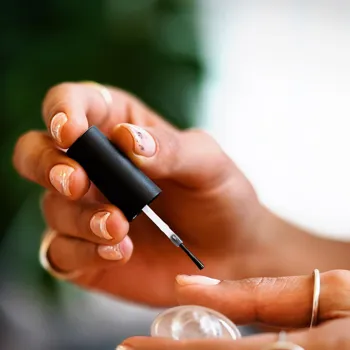
When doing household chores or working with chemicals, always wear gloves to protect your hands and nails. This will act as a barrier, shielding your nails from the damaging effects of these substances.
Choose gloves that are made of a durable material like rubber or latex, and make sure they fit well to provide adequate protection. When using nail polish remover, opt for a formula that is acetone-free. Acetone is a harsh solvent that can severely dry out your nails.
Acetone-free removers are gentler and less damaging, but they may take a bit longer to remove your polish. Be patient and avoid scrubbing your nails excessively. After removing your polish, always apply a moisturizing hand cream or nail oil to replenish any lost moisture.
By taking these simple precautions, you can significantly reduce the exposure of your nails to harsh chemicals and keep them healthy and strong. Remember, prevention is always better than cure!
Give Your Nails a Break from Polish
While nail polish can add a touch of glamour to your look, wearing it constantly can actually be detrimental to your nail health. Nail polish prevents your nails from "breathing" and can trap moisture, creating a breeding ground for bacteria and fungi.
Give your nails a break from polish every few weeks to allow them to recover and rehydrate. A week or two without polish can make a big difference in the overall health and strength of your nails. During this break, focus on moisturizing your nails regularly and keeping them clean and well-trimmed.
If you absolutely must wear nail polish, opt for a base coat that contains nourishing ingredients like vitamins and minerals. This will help to protect your nails from the damaging effects of the polish.
Choose a nail polish that is "5-free," meaning it is free from the five most common toxic chemicals found in nail polish: formaldehyde, dibutyl phthalate (DBP), toluene, formaldehyde resin, and camphor. These chemicals can be harmful to your health and can weaken your nails.
Remember, moderation is key!
Diet Matters: Nourish Your Nails from Within
The health of your nails is closely linked to your overall diet. A balanced and nutritious diet is essential for strong and healthy nails. Include plenty of fruits, vegetables, and whole grains in your diet to ensure you're getting all the necessary vitamins and minerals.
Certain nutrients are particularly important for nail health. Biotin, a B vitamin, is known to strengthen nails and promote growth. You can find biotin in foods like eggs, nuts, seeds, and sweet potatoes.
Protein is another essential nutrient for nail health, as nails are made up of keratin, a type of protein. Include lean protein sources like lentils, beans, and tofu in your diet. Iron is also crucial for nail health, as iron deficiency can lead to brittle nails.
Include iron-rich foods like spinach, and fortified cereals in your diet. Consider talking to your doctor about taking a multivitamin or a specific supplement for nail health, especially if you have any dietary restrictions or underlying health conditions. Remember, beauty starts from within!
A healthy diet is not only good for your nails but also for your overall well-being.
Avoid Using Your Nails as Tools
It might seem convenient to use your nails to open packages, scrape off stickers, or perform other tasks, but this can severely damage them. Using your nails as tools can lead to breakage, splitting, and even infection.
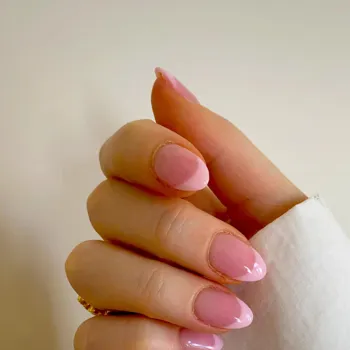
Instead of using your nails, opt for proper tools like scissors, knives, or screwdrivers. This will protect your nails from unnecessary stress and damage. If you have a habit of biting your nails, make a conscious effort to stop.
Nail biting is a common habit that can damage the nail bed, increase the risk of infection, and make your nails look unsightly. There are many strategies to help you break this habit, such as applying bitter-tasting nail polish or wearing gloves.
Identify the triggers that lead you to bite your nails and find alternative ways to cope with stress or boredom. Remember, your nails are not tools! Treat them with care and respect, and they will stay healthy and strong.
Be Patient and Consistent
Nail growth is a slow process, and it can take several months to see noticeable improvements in the health and appearance of your nails. Be patient and consistent with your nail care routine, and don't get discouraged if you don't see results overnight. Remember that consistency is key!
Make these tips a part of your daily routine, and you'll gradually see a difference in the strength and health of your nails. If you have any concerns about your nails, such as persistent discoloration, thickening, or pain, consult a doctor or dermatologist.
These symptoms could be a sign of an underlying health condition. With proper care and attention, you can achieve healthy and beautiful nails that you can be proud of. Remember, taking care of your nails is an investment in your overall health and well-being.
So, embrace these tips and make them a habit.
AI Generated Content. Glance/InMobi shall have no liability for the content